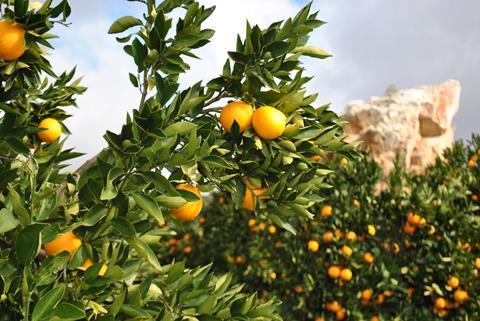Despite a good start in Europe, tougher times may be on the horizon when the impact of new EU regulations is truly felt
It has been smooth sailing for South African citrus in Europe so far this year, but this is not expected to continue when the big orange shipments start in July.

“Therefore, we will only see the impact of the new EU regulations later in the year,” said the Citrus Growers’ Association’s (CGA) Justin Chadwick. “Overall, we still estimate that around 20 per cent of oranges produced for Europe will not be shipped this year because of the new regulations.”
Chadwick said that the new season had started positively. “So far we haven’t experienced any serious problems,” he confirmed.
“Oranges however only start to move to Europe from late June into July and then in all seriousness in August. The key sales months for South African citrus in the EU is from July until October.”
Potential supply gap
Losing around 20 per cent of oranges produced for Europe means that approximately 80,000 tonnes will not make it to European supermarket shelves this year, which could potentially result in a gap in the supply from July to October.
“We will only see the impact of the new regulations later in the year,” he said.
The CGA had previously pointed out that massive investments would be required to comply with EU requirements, while it also suggested potential losses from missed shipping opportunities had cost at least R500m.
On a positive note, it had been a good season so far for mandarins, Chadwick outlined. By the end of last week 11m cartons of mandarins had been packed, with 7.3m cartons already shipped.
“Last year at the same time, we packed 8.1m cartons and shipped 5m,” he said. ”Our latest prediction for mandarins remains a total of 34.1m cartons, compared to last year’s 31.8m.”
Western Cape exporters noted that they have had an excellent start to the mandarin marketing season, in Europe with exchange rates boosting income.
EU numbers
Early shipment statistics showed that so far 40 per cent of the early citrus had been shipped to the EU, compared with 22 per cent at the same time last year. During the same period shipments to other destinations declined.
“This shows the effect of the early end to the Northern Hemisphere season, as well as fairly low volumes shipped so far this season,” Chadwick said.
“The present volumes are what the current capacity for cooling can easily handle. Capacity will be tested in July and August, after which the real impact of the measures in the EU will become clear.”
Citrus sources said the ability to deal with the EU regulations was directly linked to the amount of cold storage available, particularly in the north of the country.
They pointed out that growers in the Western and Northern Cape regions of South Africa, through their supply experiences in the US, were perhaps used to dealing with the new requirements.
This year more coldstore capacity has been built in the Western Cape region to deal with increased international supply requirements, and the region will potentially find it easier to deal with the new measures.



